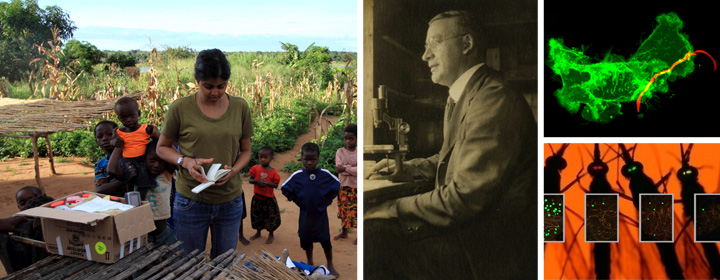About

The Department of Molecular Microbiology and Immunology (MMI) pursues research that aims to advance the understanding of the biology of disease and to use this knowledge to solve public health problems.
Our faculty includes about 30 expert faculty members, with research interests that encompass the historically important areas of parasitology, bacteriology, vector biology/medical entomology, virology, ecology and immunology.
Research takes place in the laboratory, in the clinic and in the field, as the faculty works to combat such enormous public health problems as malaria, sexually transmitted diseases, mosquito-borne encephalitis, tuberculosis, diarrhea, measles, AIDS and autoimmune diseases.
The Department is committed to providing outstanding training toward understanding infectious disease processes at all levels, from the population through organismal, tissue, cellular and molecular aspects of public health biology. Our programs seeks to equip carefully selected graduate and postgraduate students with the diverse disciplinary concepts and methodological tools needed to address critical biological issues underlying a broad range of infectious and immunologic diseases of public health importance.
Mission Statement
The mission of MMI is to advance fundamental knowledge of human pathogens, host-microbe interactions and arthropod vectors, develop interventions to improve public health, and train scientists to conduct rigorous, ethical research while embracing diversity, inclusion and the unique experiences of all department members.
